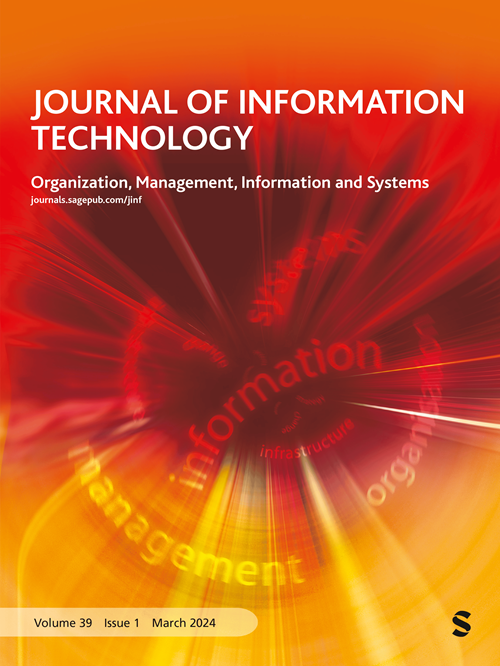A critical realist approach to agent-based modeling: Unlocking prediction in non-positivist paradigms
IF 5.4
3区 管理学
Q1 COMPUTER SCIENCE, INFORMATION SYSTEMS
引用次数: 0
Abstract
Information systems (IS) scholarship and practice aim to predict phenomena and outcomes of IS use. These phenomena of IS use are typically set in multi-leveled, dynamic, and complex contexts that lend explanation to the non-positivist tradition in IS research. However, limited methodological options exist to make predictions. In this research, we propose stratified agent-based modeling, a step-by-step approach that enables prediction in non-positivist paradigms. Drawing upon the critical realist philosophy of science, which suggests ontological stratification and assumes open systems, we adopt a retroduction-based explanation formation and agent-based modeling to simulate different potential states of a complex system. The critical step in combining critical realism with agent-based modeling involves identifying and codifying the underlying generative mechanisms (i.e., causal powers) into various components of the agent-based model. We propose four steps toward prediction under the critical realist paradigm: (1) capturing the phenomenon, (2) identifying the generative mechanism, (3) building the agent-based model, and (4) simulating states of the system. We present an exemplar of our proposed approach that investigates the effectiveness of strategies to combat malicious content propagation in social networks.基于代理建模的批判现实主义方法:在非实证主义范式中解开预测之谜
信息系统(IS)的学术研究和实践旨在预测 IS 使用的现象和结果。这些使用信息系统的现象通常是在多层次、动态和复杂的背景下出现的,这就为信息系统研究中的非实证主义传统提供了解释。然而,用于预测的方法却很有限。在这项研究中,我们提出了基于分层代理的建模方法,这是一种能够在非实证主义范式中进行预测的循序渐进的方法。批判现实主义科学哲学提出本体论分层并假定系统是开放的,我们借鉴这一哲学,采用基于逆向归纳的解释形成和基于代理的建模来模拟复杂系统的不同潜在状态。将批判现实主义与基于代理的建模结合起来的关键步骤是识别潜在的生成机制(即因果力量)并将其编入基于代理的模型的各个组成部分。我们提出了在批判现实主义范式下进行预测的四个步骤:(1) 捕捉现象,(2) 识别生成机制,(3) 建立基于代理的模型,(4) 模拟系统状态。我们介绍了我们提出的方法的一个范例,该范例研究了打击社交网络中恶意内容传播的策略的有效性。
本文章由计算机程序翻译,如有差异,请以英文原文为准。
求助全文
约1分钟内获得全文
求助全文
来源期刊

Journal of Information Technology
工程技术-计算机:信息系统
CiteScore
10.00
自引率
1.80%
发文量
19
审稿时长
>12 weeks
期刊介绍:
The aim of the Journal of Information Technology (JIT) is to provide academically robust papers, research, critical reviews and opinions on the organisational, social and management issues associated with significant information-based technologies. It is designed to be read by academics, scholars, advanced students, reflective practitioners, and those seeking an update on current experience and future prospects in relation to contemporary information and communications technology themes.
JIT focuses on new research addressing technology and the management of IT, including strategy, change, infrastructure, human resources, sourcing, system development and implementation, communications, technology developments, technology futures, national policies and standards. It also publishes articles that advance our understanding and application of research approaches and methods.
 求助内容:
求助内容: 应助结果提醒方式:
应助结果提醒方式:


